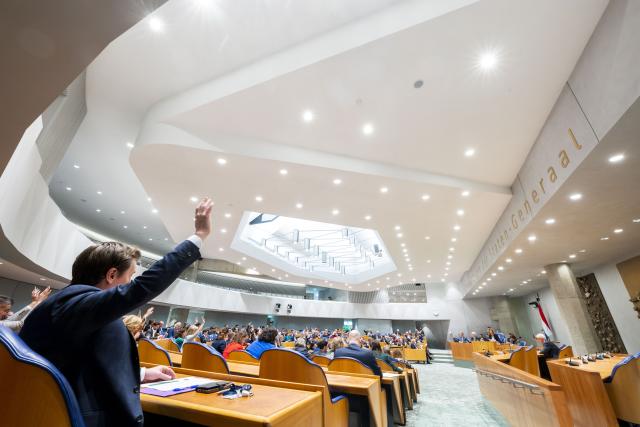The House of Representatives at work
The work of MPs largely consists of attending meetings and voting on political issues. These activities are preceded by the necessary preparations, such as the close examination of documents, working visits, opportunities for the public to make their opinions heard, consultations with the voters and the general public.
Important issues are almost always dealt with in plenary sittings, for instance general (political or financial) considerations, debates about important topical issues and the deliberations on bills and budgets. Final decision-making also takes place in plenary sittings, e.g. voting on bills, amendments and motions.
Arrangement of business
The House of Representatives follows an agenda that is drawn up several times a week during the so-called “arrangement of business”. Apart from the plenary sittings, a large number of committee meetings are also held. The meetings of the House of Representatives are almost always public. All public meetings are recorded.
Committees: The backbone of the work of the House of Representatives
The first image that usually comes to mind when thinking of the House of Representatives is that of the Plenary Hall. This is where MPs carry on sometimes fierce debates...
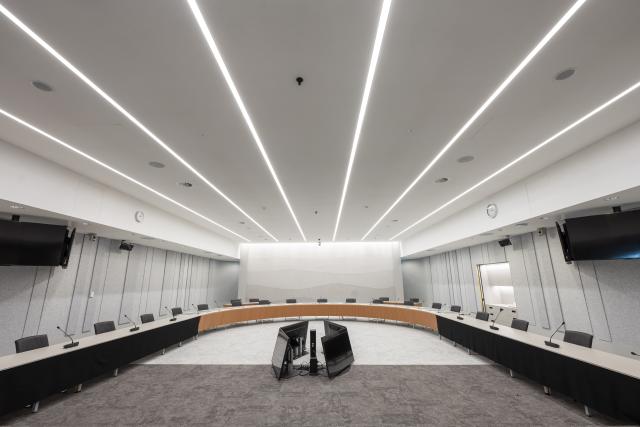
Parliamentary inquiry
The parliamentary committee of inquiry is a particular type of temporary committee of the House. The parliamentary inquiry is the most powerful instrument the Dutch Parliament has at its disposal...
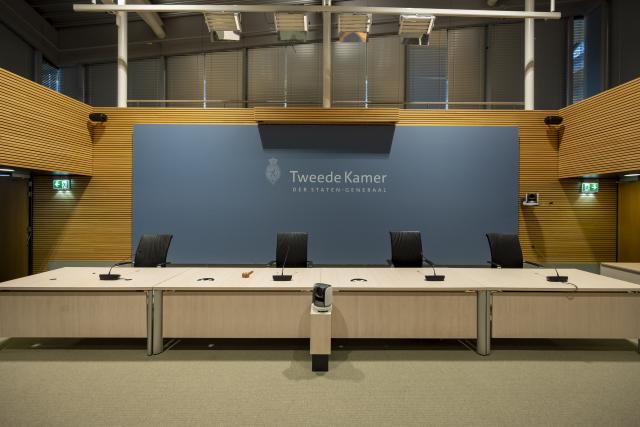
Plenary sitting
The assembly of all the 150 members of the House of Representatives together is called the plenary sitting. Plenary meetings are held in the Plenary Hall.
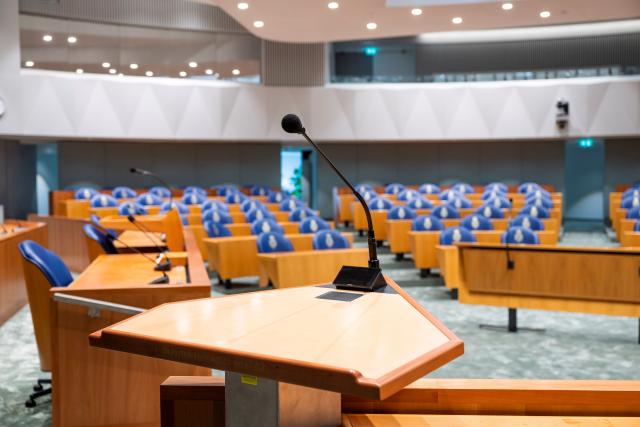
The debate
Debates are held according to an established pattern. First, the floor is given to the spokespersons from the political groups in the House of Representatives. The minister or state secretary...
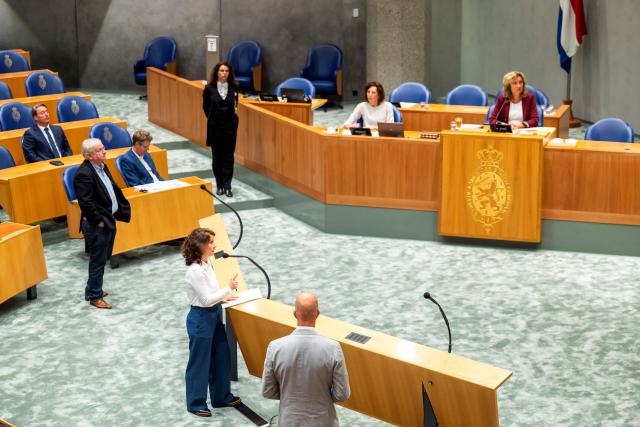
Voting
After the debate has been closed, the House of Representatives will take a decision by voting. There are three methods of voting, namely by show of hands (by political group)...
